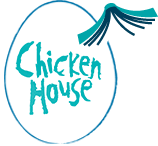Decoding Publishing Jargon: Sales
Sales is a crucial part of the publishing process (well, obviously!), and as sales tends to be publishers and booksellers talking to other publishers and booksellers, jargon is rife! We've broken down some of those trickier terms for any aspiring authors ...
AI (advance information sheet) – this is a sheet with all the key information for a title. It includes title, author, the book blurb or description, key sales points and information about the author. It also includes details such as the ISBN, price and publication date. Publishers send AIs to booksellers well in advance of publication so they have all the information they need to buy a title.
Sell-in and sell-out – confusingly, we may talk of ‘sell-in’ and ‘sell-out’. ‘Sell-in’ is the number of copies publishers have sold in to bookshops. ‘Sell-out’ is the number of copies booksellers have sold out of shops.
Bound proof (known as ARC or advanced reading copy in the US) – this is a bound book that is produced before the manuscript is completely finalized. Generally, for a bound proof the text is typeset after the copy-editing stage, but printed before it is proofread. A bound proof is printed early, so publishers can send out the manuscript to key sales and publicity contacts before publication. The cover used for the bound proof isn’t the final version. Generally, the quality of a bound proof is much lower than that of a final finished copy.
ISBN (International Standard Book Number) – this is the thirteen-digit number found on the back of a book and on the copyright page. This number is unique to the book, and is used to identify the book when bookshops order copies. One title can have many ISBNs, as each format has to have a new ISBN (i.e. hardback, paperback, ebook).
Advance – the advance is the money given to an author upfront for their novel. Any royalties earned following the publication of a book will go towards paying off the advance. Once the advance has earned out (i.e. the royalties earned is equal to the advance the author received), the author will then start earning royalties which will be paid on a regular basis (usually every six months).
Royalties – a royalty is the amount that an author receives for every copy of their book sold. This is usually a percentage of the price a publisher receives from a bookseller for each book.
What haven't we explained? Tweet us at @chickenhsebooks!

Jazz says...
Hi Barbara, we're not sure of the exact opening date yet, but it will be after the 2016 winner is announced!